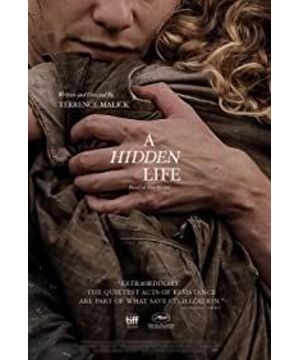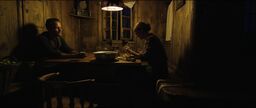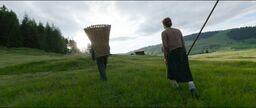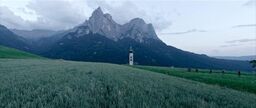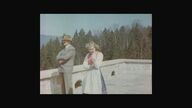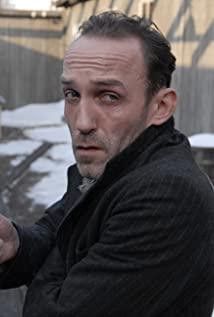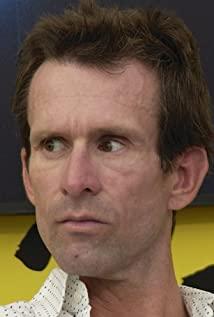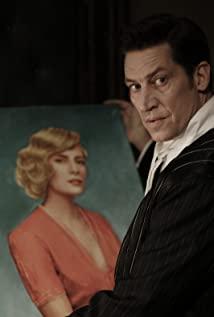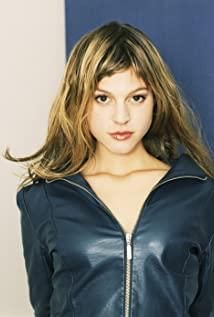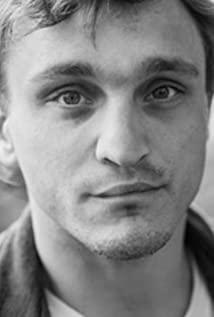The increasing goodness in the world depends in part on unheralded actions. And the reason why things around you and me aren't so bad is partly due to those people who don't seek fame and fortune but live faithfully, and who die without any condolences. - George Eliot
https://mp.weixin.qq.com/s/5AA_nxIJKqBoxp2ItYNc0A
The increasing goodness in the world depends in part on unheralded actions. And the reason why things around you and me aren't so bad is partly due to those people who don't seek fame and fortune but live faithfully, and who die without any condolences. --George Eliot, "The Hidden Life" directed by Terrence MalickAlive, a historical biographical film based on true events, was released in Germany in 2019. When it comes to Malick, the first impression of many people is his film "The Thin Red Line", but this time "The Hidden Life" has changed Malick's previous style. Such a sad story is presented in Malick's lens. Poetic beauty. Whether it expresses the breath of life in the emerald green mountains or the pulse of the stormy wind, it shows the audience a beauty without impurities in nature. This beauty is so pure! This also seems to be what Malick wants to tell the audience: this kind of beauty belongs very much to people and families like Franz Jagersted. The film tells about the outbreak of World War II, Austrian farmer Franz Jagersted was forced to leave his hometown to join the army. Because he saw the extreme performance of the German Nazis in the army, he felt that this was not the righteous teacher he thought. On the contrary, it was a tyrannical teacher who violated his beliefs and could lead him to a wrong and evil situation, so he refused to serve and resolutely returned to his hometown to continue farming. During World War II, due to the special relationship between Austria and Germany, a large number of men were called up to fight for Germany. The Austrians were in the "pampering" of the powerful military force of the Nazi German army, people had become accustomed to the wrong form of the time, and Franz Jagersted and his family in such an environment, such a "rebellious" behavior of course He became an "outlier" in the village. During the period of refusing to serve and returning to his hometown, he was constantly resisted and insulted by fellow villagers. He was regarded as a "traitor" by the villagers and the township chief. From winter to spring, conscription in Austria is in full swing. Franz Jagerstedt once again received a conscription notice and faced a choice amid many days of depression and worry. In order to prevent his family from being implicated and hurt, Franz Jagersted was forced to come to the barracks for the second time. When he was faced with the oath of allegiance to Hitler, he refused to take the oath, loyal to his conscience, faith and yearning for spiritual freedom. Franz Jagersted was imprisoned until he was sentenced to death by the Imperial Military Court. Ordinary farmer Franz Jagerstedt and his wife Franzska, who grew up in the Austrian Alps, fell in love with each other and started a family. They used to be the embodiment of freedom, joy and happiness in the eyes of many people. When he retired for the first time and returned to his hometown, most people in the village believed that he chose to retire early because he was afraid of dying on the battlefield. In this film, Malick used a lot of montage expression techniques, intersecting, coherent, and incoherent camera processing to express the various psychological activities of the protagonist Franz Jagersted. The use of multiple wide-angle lenses makes the film show a very strong tension, the expressions of the German Nazi officers and soldiers when they are tyrannical, and the villages reddened by the German Nazis. Even in the marching road, in the narrow prison with limited space, and even in the interrogation room where Franz Jagersted was interrogated, Malick still used many wide-angle lenses to deal with these scenes. , which brings a sense of edge distortion and deformation to these spaces, you can even see the actions of some non-central characters in these scenes, the visual language presented by these tension-expanded shots, in the seemingly calm The picture, (no rumbling cannons, no roaring bombs), makes people feel a great sense of suffocation and depression. In the film, Franz Jagersted's dialogue with priests, mayors, church painters, antichrists, prisoners, lawyers, military court judges, etc., allows viewers to truly see the hearts of people of different identities Activity. For better or worse, the language of these conversations is poetic and thought-provoking. This is another point of Malick's intention in making this film. I paint the tombstone of the prophet I help people get up from the benchThey look up and they look up They imagine living in the time of Jesus They would n't do the evil they would kill the ones they love now I paint these sufferings but I never suffer myself I take it All we do for a living is to create sympathy we create ... we create admirers we don't create followers Darker times are coming They don't fight the truth I draw a Jesus that makes me feel good with a halo on my head I haven't experienced suffering How can I express suffering someday I might It's not enough to have the courage to take risks , Franz Jagersted when you're sadWhen I went to the church, I saw the old painter at work. Through a simple conversation, the old painter shared his inner feelings. Looking at the paintings on the ceiling, Franz felt that every sentence the old painter said was his own voice and the support of his own piety. On the way home, Franz said with emotion: One day I will... I will draw the real Jesus. The film is heavily interspersed with fragments of the life of Franz Jagerstedt's family after he was imprisoned, and the life pressures faced by the remaining women after a labor-based farming family lost their only male labor force. is huge. We have seen the daily life of Franz Jagersted's wife, Franzska, and their three daughters. Farming and harvesting, mending and sewing, and taking care of their daughters, the work is no different from the previous one. But because of the absence of men, there is a sense of physical heaviness. In such a difficult predicament, Franz Jagersted and his wife, Franzska, both lost their kindness. During her husband's imprisonment, the wife calmly faced the villagers who stole vegetables, took care of the villagers and was despised by others. The widow; Franz Jagerstedt was carrying a suitcase for a woman on a train on his way to Tegel Prison in Berlin. There are many pictures of the beauty of nature in the film, the changing light and shadow between the tree shadows, the hair that is outlined by the afterglow, the halo cast on them by the family members sitting in front of the window and processing the ingredients, all of which are like the kindness of the couple. unforgettable for the viewer. Talking with three German Nazi representatives of different identities during Franz Jagersted's captivity is the best part of the conversation. The first was an Antichrist sent by the German Nazis to lobby Franz Jagerstedt to give up his so-called beliefs. The second was a defense lawyer assigned by the Imperial Military Court. The lawyer took Franz Jagersted's point of view to persuade him to change his insistence. This seemed to be his last chance to give up his beliefs and gain freedom. The third is the presiding judge of the military court. Franz Jagerstedt's unwavering faith surprised the presiding judge, who wanted to know what the stubborn common man had in mind, and one of the most vivid dialogues became the finishing touch in the film. part. Even if the body is imprisoned, there is still a free mind. A firm belief is the greatest brilliance of human nature. "The Hidden Life" is indeed a very moving film, and it is truly powerful in the expression of the value of one's beliefs and beliefs. In the film, Franz Jagerstedt's greatest emotion when he was just imprisoned was: When I compare my suffering with others, I can seeI suffered the least myself and the ordeals they suffered were horrific You have to remember that nothing is shaken by bad situations The real inspiration of the film I think is that even if you don't suffer much, you stand firm in your beliefs is the best path. People don't have to go through a lot of hardships to feel great. It is the freedom in the ordinary that is the most precious happiness in life. Every man's faith is his secret life in which he can fly like a bird. Bright green grass is good for people. People who are free may not notice that the film finally shows Franz Jagersted 's insistence on the bottom line of faith. Instead of a bright future, it is met with darkness. Endless devour. The film ends with Franz Jagersted walking into the cold and cruel execution room. Such a depressing and tragic ending is unwilling to be seen by many kind audiences. And the reason why Malick ended like this really wanted to establish a sense of ritual, a sense of ritual that is alive even after death: the body dies, the spirit lives forever. This is also the case. We can still see films based on the true story of Franz Jagerstedt. Isn't this just proof of the fact that the spirit lives on? It is the flesh that martyrs for faith, and the kind weeping of future generations that lives forever for faith! Because the spirit of those who insist on good faith will always be bright and memorable. Franz Jagerstedt said in a dialogue with the presiding judge of the Imperial Military Court: "A man may make mistakes, but he cannot escape the consequences of his mistakes in exchange for his innocence. Maybe he wants to start over, but And he can't do it." And in the film, the chief inquisitor representing German Nazism, after Franz Jagerstedt is taken away, sits in the chair where the "criminal" once sat. The lonely and helpless expression and a pair of withered hands on the knees are the intriguing focus of the whole film.
~~END~~
View more about A Hidden Life reviews


